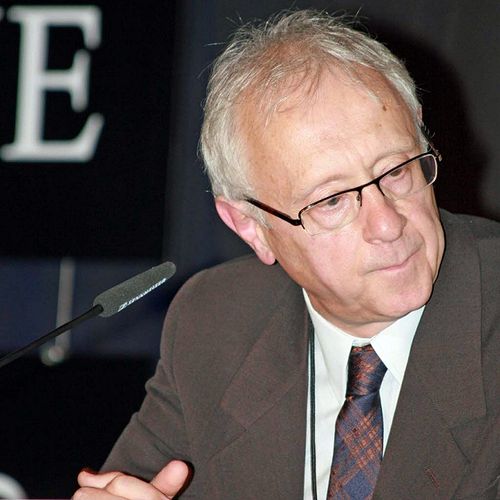As I struggle to work out my “political theory,” I came across a review that introduced me to a Christian political theorist who sounds very helpful.
John Kitch has reviewed a collection of essays by Pierre Manent , described by Wikipedia as “a key figure of the contemporary French political philosophy” and a “classical liberal.” (Click the link for a good definition of what that freedom-loving ideology entails.)
He is also a Catholic Christian. But he is neither an integralist, wanting the Pope to rule over a revived illiberal Catholic empire, nor a progressive Catholic who thinks the gospel is about social justice.
Manent says that the church needs to recover its emphasis on Jesus Christ. In that way and by restoring its other traditional teachings–not by trying to emulate the culture–the church will become culturally relevant and influential again.
What intrigues me is that Manent calls for the restoration of Christianity in the West, but his political prescriptions are for more pragmatism. As opposed to religious rule. In fact, the problems he sees are caused by religious rule of a particular kind: the “Religion of Humanity.”
That term comes from Auguste Comte (1798–1857), an atheist who sought to create a new religion based on devotion to human beings. Manent argues that this religion has infiltrated the church, throwing it off its true mission, and it has infiltrated modern politics, creating all sorts of havoc.
Kitch is reviewing an English translation of a collection of essays by Manent on this subject, edited by Paul Seaton, entitled The Religion of Humanity: The Illusion of Our Times.
From John Kitch’s review in Law & Liberty, A Christian Answer to Secular Humanism:
Writing in 2012, Manent argues the point this way: “The Church will not regain its courage unless it rediscovers faith in the goodness and friendship of God. The Catholic Church … has no other political task.” In 2020, Manent responded to the way Pope Francis interpreted the parable of the Good Samaritan earlier that year in Fratelli tutti. The Pope exhorts Christians to commit more deeply to international cooperation, while Manent worries that such an attitude will come at the cost of articulating fundamental Christian teachings. He explains, “The Samaritan is none other than Jesus Christ. There is no Christianity outside of Jesus Christ. Christians, and no doubt many non-Christians, expect the Church to teach about Jesus Christ.”
His point is that Pope Francis is fixated instead on the omni-benevolent “Religion of Humanity.” But so are secular politicians:
Manent highlights the tension Western Europe faces today in accepting large numbers of migrants. His most basic complaint is that the contours of public debate now focus on moral questions nearly exclusively. Writing in 2021, he laments the way that the debate has become polarized. On one side, there are those who argue that more prosperous countries have a duty to accept as many incoming migrants as possible. On the other, there are those who assert a nation’s right to regulate immigration as a matter of basic sovereignty, without any regard to the moral question of how incoming migrants will fare.
Instead of engaging an argument between two fixed and fundamentally opposed viewpoints, Manent asks us to think about the practical, that is the political, reasons that mass migration usually happens. Only then might we be able to devise solutions that could address the fundamental problems pushing people out of their native countries.
The political reasons for mass migration usually have to do with failed states. “Stable, wealthy states do not have a moral duty to solve the political problems of states in crisis,” he maintains. “If, though, Europe and the United States are going to get serious about slowing the influx of refugees then the richer countries will have to help solve the root political problems of the poorer countries.”
But we also do that ineffectively when our approach is that of a religious crusade:
Manent fears that a zealotry for intervention in the name of universal human rights often has dire consequences. In his view, the Christian West ought to be concerned for its neighbors, but it ought not to crusade, even for a good cause, because the end result is almost certain to be a worse situation.
In a discussion of policy towards Iran, Manent
worried that bombastic moralizing rhetoric on behalf of Western leaders was dangerously misguided and demonstrated a level of naivety that could lead to recklessness. That Western leaders deployed an absolutist moral language with “geometrical purity” demonstrates that they viewed themselves as fighting for the ideal of justice, rather than seeking to achieve the concrete but limited gains that realistic statesmen know is the best we can do in this fallen world.
Kitch takes issue with some of the editor’s conclusions, making some important points himself:
The deepest concern I see Manent developing, though, is that traditional Christianity will fail to ensure its own relevance to the political life of the West, not through nefarious actions undertaken by the anti-religious, but through the mistakes and incompetence of the church itself. . . .
Manent’s real worry is that the church is slowly allowing its own witness to be diluted to the point of irrelevance in today’s world. Manent wants the church to reassert its traditional teachings and, he believes, in the process it would regain its cultural power.
Photo: Pierre Manent by Semaines sociales de France – http://www.ssf-fr.org/album_56_220.html, CC BY-SA 2.0 fr, https://commons.wikimedia.org/w/index.php?curid=19300601












